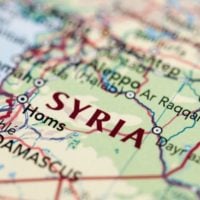Deadline: 17-Jul-23
The United Nations Development Program in Serbia announces a public call for civil society organizations from Serbia that operate in the field of transitional justice, social cohesion and protection of human rights within the regional project “Support of the European Union to building trust in the Western Balkans”, which is financed by the European Union and implemented UNDP.
All interventions will aim to increase both responsibility for war crimes in the region and public support for it, as well as strengthening dialogue within societies and between ethnic groups about the crimes committed during the 1990s, all with the aim of achieving sustainable peace in the region. and building a more resilient society and stronger social cohesion.
Objectives
- Grants are awarded simultaneously in Bosnia and Herzegovina, Montenegro, Kosovo, North Macedonia and Serbia, through an open call for project proposals. The goals are:
- dealing with the legacy of conflict and promoting reconciliation (e.g. inter-societal and inter-generational dialogue, education on transitional justice, youth engagement),
- improving public awareness of war crimes and trials,
- conducting and publishing research (including documenting crimes, human losses, positive examples of interethnic solidarity),
- public representation,
- historical research and teaching, developing and piloting transitional justice and trust-building curricula.
Funding Information
- The minimum amount per grant is EUR 5,000
- The maximum amount per grant is EUR 80,000
- Duration of the proposed project: minimum 4 months, maximum 24 months. In exceptional situations, when it comes to complex projects, they can last 38 months, which are preferably implemented by two or more entities, and if there is a solid justification.
- Note: Each grant can be awarded to a project led by one qualified organization, or two or more qualified organizations (consortium). In the case of a consortium, only one organization applies as the main applicant, which signs the contract with UNDP and is responsible to UNDP for the implementation of the project.
Eligibility Criteria
- Applicants who meet the conditions for receiving grants are:
- Non-governmental organizations registered in Serbia, engaged in the promotion and protection of transitional justice, human rights and social dialogue, including victims’ associations;
- Non-governmental sports associations may also be eligible in combination with the other criteria listed;
- Non-governmental academic, research or educational institutions;
- Non-governmental organization whose field of work is focused on the development of culture;
- Non-governmental museums and other non-governmental memorialization institutions, if they offer new and innovative approaches to fact-based and inclusive memorialization.
- Each grant can be awarded to a project led by one qualified organization, or two or more qualified organizations (consortium); in the case of a consortium, only one entity applies as the main applicant, who signs the contract with UNDP and is responsible to UNDP for the implementation of the project.
Selection Criteria
- Grants awarded should aim to promote activities and results in the following areas:
- Public debates, media campaigns, including those on social networks, and other public events to promote a fact-based confrontation with the past;
- Educational programs on transitional justice and the wars of the 1990s that include a gender perspective, aimed at future decision-makers and leaders (young political activists, young women leaders, young lawyers, historians, sociologists, political scientists /skins, etc.);
- Research in the country and region, academic exchange and internship programs for social science researchers with a focus on transitional justice, documenting crimes, promoting inter-ethnic relations and solidarity;
- Development and/or piloting of new gender-responsive university curricula on transitional justice and peace studies, with an emphasis on the regional context;
- Promotion of various forms of inter-social and inter-ethnic dialogue, especially youth dialogue and youth engagement, on overcoming the legacy of the past and promoting reconciliation and closer inter-ethnic relations;
- Promoting gender-responsive dialogue regarding the legacy of the past with feminist approaches to reconciliation;
- Building synergy between actors at the local community level with the aim of inclusive and joint (inter-ethnic) memorialization initiatives, focused on the facts and victims of war crimes;
- Enhancing or building sustainable partnerships between civil society organizations (including local level initiatives and victims’ associations) and institutions – at national or local/municipal level – with the aim of promoting inter-ethnic reconciliation, memorialization and evidence-based dialogue about the past;
- Support for artists and workers in the field of culture and promotion of artivism (art activism) in dealing with the legacy of the past and promoting reconciliation.
- The selection of proposals will, among other things, be made on the basis of:
- estimated impact of the proposed project on raising public awareness of past crimes, promotion of inter-ethnic dialogue and reconciliation,
- the potential of the proposed project to achieve systemic changes in society,
- sustainability of the intervention,
- expected costs (value for money).
For more information, visit UNDP.








































